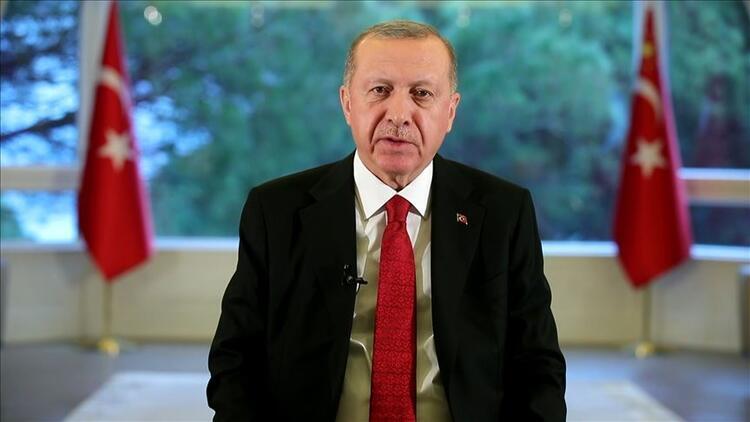Turkey will overcome the coronavirus outbreak in two to three weeks through good measures and with as little damage as possible, President Recep Tayyip Erdoğan said on March 25.

In a televised address to the nation, Erdoğan said Turkey was prepared for every scenario on the outbreak and urged Turkish nationals to show patience, understanding and support.
“By breaking the speed of the virus’ spread in two to three weeks, we will get through this period as soon as possible and with as little damage as possible,” Erdoğan said.
“Bright days await us, so long as we adhere by the warnings, remain cautious and careful,” he added. “Every citizen’s life is equally valuable to us. That is why we say, ‘Stay at Home, Turkey’.”
Ankara has taken a series of measures to contain the virus, including limiting the use of public spaces, imposing a partial curfew on the elderly, as well as closing schools, cafes, and bars, banning mass prayers, and suspending sports matches and international flights.
Assuring that the government would always stand by tradesmen and craftsmen, Erdoğan said the unemployment fund and credit guarantee fund would be strengthened.
“The world is moving towards a period in which nothing will be the same after this epidemic disease, and a brand new global, political, economic and social system will be built,” the president said.
The president said that the country would earmark 7 billion Turkish Liras ($1.08 billion) in support of workers with minimum wage.
The country will provide 1,000 Turkish liras ($155) to 2 million low-income families and increase the minimum pension to 1,500 Turkish liras ($233), Erdoğan said.
The Turkish government announced it would recruit 32,000 new health sector professionals and provide up to 6 million liras (some $930,000) to firms that locally produce disinfectants, protective clothes, goggles and masks.
The ongoing pandemic has resulted in medical protective gear shortages around the world.
“One million fast test kits [to fight against the virus] will come into use in a short period,” he added.
Turkey’s death toll from the coronavirus jumped by 15 to 59 on March 25, and the number of confirmed cases increased by 561 to 2,433.
Around 33,000 tests have been conducted in Turkey in the two weeks since the beginning of the outbreak.
53,000 suspected cases monitored at home
According to the figures the president provided, about 53,000 people, who are suspected of being infected with the novel coronavirus, are being monitored at their houses.
An additional 8,554 cases are being monitored in hospitals, Erdoğan said.
“While 797 people out of this figure recovered completely and were discharged [from hospitals], samples have been collected from 4,603 people for further study,” Erdoğan said.
“The treatment of 1,872 people, diagnosed with COVID-19, continues,” he added.
The president also extended his condolences to those who lost their lives due to the novel coronavirus.
He said that all of the deceased had “underlying diseases” apart from the COVID-19.
Erdoğan also urged the elderly citizens to stay at their homes, while advising other citizens to refrain from being “disrespectful” and offending the elderly.
‘No doubt over health services’ quality’
The president also voiced support for the health services Turkey provides to patients, saying the country has the world’s most modern hospitals and most widespread health insurance system.
Works to hire an additional 32,000 personnel have already been started, he added.
69 countries asked for support
Erdoğan also conveyed that some 69 countries around the world have asked for aid from Turkey. Ankara has sent help to 17 of them, “based on the means” it has.
Comments
Post a Comment